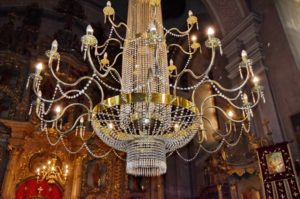
Two fancy words live together. These two fancy words are siblings. I can imagine that while living together, most of the time they complement each other, they laugh together, share responsibilities, support one another, counsel each other and simply hang out. However, once in a while they also argue. These two fancy words that live together as siblings are called orthodoxy and orthopraxy.
I want to take a moment and describe these two siblings. Orthodoxy is a belief in a certain set of doctrines. Various religions and groups of people, for example, have their own set of orthodoxy, their beliefs. Think of orthodoxy simply as what you believe. Orthopraxy has to do with conduct, a set of behaviors and is usually action oriented. Think of orthopraxy simply as what you do.


Therefore, perhaps we can better understand how these two siblings live together. One is focused on “what I believe” and the other is focused on “what I do.” Sometimes these two siblings try to live separate lives.
Orthodoxy
One focuses on belief and is constantly thinking on, talking about and studying their set of beliefs. For example, the Jewish scholars of old would spend most of their lives studying their beliefs. Today we have professors, theologians, philosophers and various scientists that dedicate their entire lives to the exploration of a set of beliefs and ideas.
Orthopraxy
The other sibling focuses on action and is constantly thinking about what needs to be done, what has been done and what is being accomplished. Imagine this sibling often speaking about return on investment, goals, achievements, results and rarely sitting down. I think of a salesman that is constantly thinking of ways to sell his or her wares, creative marketing ideas, the newest pitch, and always on the lookout for that potential customer. These two vacation very differently.
Ponder for a moment on why these two siblings live together. The reason they live together is because they actually need each other. Their very own value is found in the existence of the other. One without the other can’t survive.
I mentioned earlier that these two siblings do life together and most of the time get along, though there is that moment when they argue. I have found in my own life that the existence of both in my life makes for an interesting life. I actually don’t believe they exist in a balanced way, where orthodoxy and orthopraxy are always being represented 50/50.
My orthodoxy has a core that remains steadfast, very much like a compass heading and yet there are various ideas, sub beliefs and thoughts that orbit my orthodoxy regularly. I have found that as I age, as I gain greater life experience, as I listen and learn and simply mature that my orthodoxy is influenced. I think of my orthodoxy like the wing of an airplane. The wing is designed to have a degree of rigidity alongside the ability to flex with the circumstances. My orthodoxy has the ability to contextualize. The apostle Paul spoke about this in his first letter to the church in Corinth.

My sense is that orthodoxy is the older of the siblings and often helps lead and influence orthopraxy. My orthopraxy is heavily influenced by my beliefs. My life’s activities have greater meaning, purpose and results when they are attached to my beliefs. I am able to filter what is important and what is not.
For example, we read in Luke that Jesus is teaching in the home of Mary and Martha. The two siblings have a small spat when Martha (orthopraxy) complains that Mary (orthodoxy) is not helping with the food preparations but just sitting there listening to Jesus. Jesus comments that orthodoxy was actually the better use of time at that moment. However, in the Old Testament, Samuel speaks to Saul who is busy with orthopraxy (an uncalled-for sacrifice) about his disobedience. The principal Samuel shares is that it’s better to obey (orthopraxy) then to sacrifice. He is making a bold statement by saying that obedience is more important than just some simple hollow belief system.
Nurture the relationship between these two fancy words
The summer provides us time to slow our pace a bit, its usually a good time to have some holiday time, me time, family time and God time. The summer is a great time to nurture these two siblings that we have been talking about. Perhaps we spend some time with each of them, and we look for more ways that they can complement each other, work together and grow together.
Jesus expresses this in the Gospel of John when in a matter of two verses He uses the word “remain” five times. He says that I am to remain in Him. He concludes that if I do remain in Him, my life will have meaning, purpose and results (He uses the visual of a vine, branches and some fruit). He logically states that if I choose to no longer remain in Him, I will lose my way, my purpose and my life will appear aimless, adrift and meaningless (a fruit tree not bearing its fruit). Jesus beautifully weaves the tender relationship between orthodoxy (belief) with orthopraxy (action) in these two verses.
Therefore, let this be a season that we better understand what we believe and avoid being detoured by foolishness, untruth, random ideas and false beliefs. Perhaps there is something that God has asked you to do that you have yet to do. Let’s do it. Perhaps during this season God’s wants to reveal something about Himself that may be new to you. Let this be a season of learning, maturing and growing deep. Remember, we need both siblings together, one without the other is unhealthy, toxic and not exemplary of the life of Jesus. He has called us all to both.
 Stephan N. Tchividjian is the president and founder of the National Christian Foundation South Florida. Visit southflorida.ncfgiving.com to learn more.
Stephan N. Tchividjian is the president and founder of the National Christian Foundation South Florida. Visit southflorida.ncfgiving.com to learn more.
Read more articles by Stephan Tchividjian at: https://www.goodnewsfl.org/author/stephan-tchividjian/

Comments